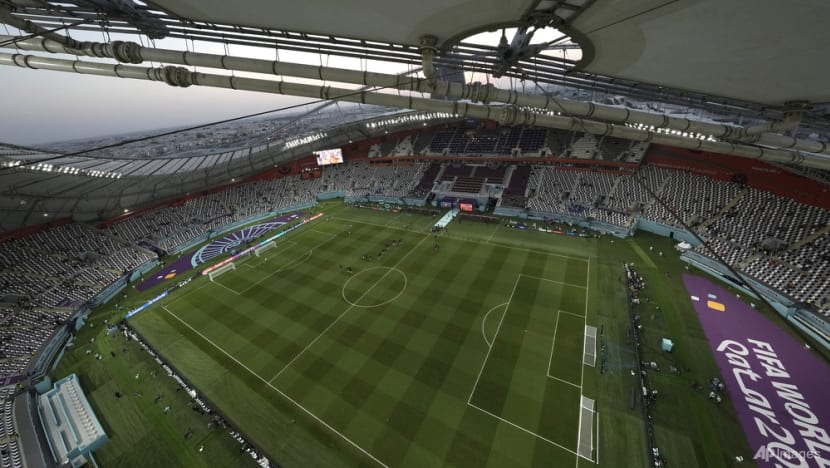Qatar hopes World Cup will boost its longer-term accessibility efforts
In a first, there are “sensory rooms” at some of the World Cup stadiums for spectators with autism or other neuro-behavioural disorders to retreat to when they need to escape the crowds.

DOHA: World Cup host Qatar is hoping the ongoing tournament will boost its accessibility efforts and help the country better accommodate people with special needs in the longer term.
For all matches, there is a dedicated allocation of tickets for disabled people and those with limited mobility to purchase. There are five types of accessibility tickets, including for wheelchair users and spectators who require a controlled sensory environment.
“So much work has been done to ensure that the World Cup is an accessible experience for disabled fans,” said football fan Ahmed Habib, a wheelchair user who has found it physically challenging when attending football matches in some European cities.
“What's really cool about it is that disabled fans were involved from the very beginning, and planning for this tournament through something that we call the Accessibility Forum. So, it's been a tremendous experience.”
LOOKING OUT FOR THOSE WITH SPECIAL NEEDS
In a first, there are “sensory rooms” set up at three of the eight World Cup stadiums for those with autism or other neuro-behavioural disorders.
On matchdays, these rooms, which are equipped with assistive technology and managed by experts, offer comfortable spaces for fans for whom a crowded stadium and loud music can be a challenging experience.
This is the first time the World Cup has provided such sensory rooms for fans who need them, said Ms Fatma Al-Nuaimi, communications executive director at the Supreme Committee for Delivery and Legacy.
“So we are not only looking out for people with physical disabilities but even people who have some autism, we want to make sure they have a right to experience.”
At the various stadiums, audio descriptive commentary is provided so those with visual impairments can also enjoy the matches, she added.
The match venues also include accessibility features, including for parking, seating, and bathrooms.
While creating a more accessible World Cup experience, Qatar also implements such efforts across the entire country as far as it can.
The organisers have engaged with various non-governmental organisations and agencies to ensure that those with disabilities are able to explore Qatar without limits.
‘FOOTBALL IS A UNIVERSAL SPORT’
"Football is a universal sport. Everyone has the right to enjoy it,” said Mr Ahmed. “Disabled people have the right to enjoy football.
“The beautiful thing about building accessible spaces is that the more we see disabled people in public spaces, the more we are going to be able to change our stereotype towards disabled people, and that really remains to be the largest obstacle that faces us.”
Organisers hope that the accessibility features will create a lasting impact beyond the World Cup.
These will also be part of upcoming events such as the Asian Cup football tournament next year.
“We are still going to be using the airport. We are still going to be using the metro,” said Ms Fatma.
“So all of these (features) would be left for the country and for the people of the country to be using them.”


















